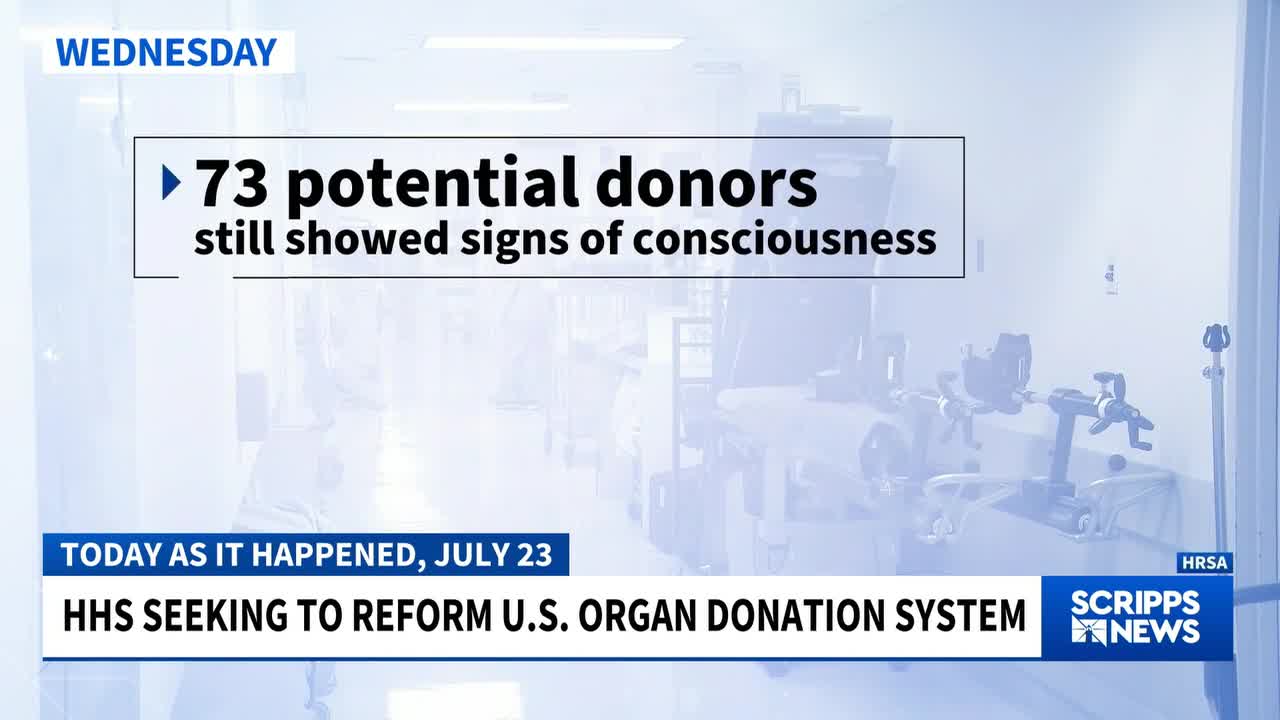The Department of Health and Human Services announced an initiative to reform the U.S. organ transplant system after a federal investigation uncovered what it called disturbing practices at an organ procurement organization that served Kentucky, Ohio and West Virginia.
“Our findings show that hospitals allowed the organ procurement process to begin when patients showed signs of life, and this is horrifying,” Health and Human Services Secretary Robert F. Kennedy Jr. said. “The organ procurement organizations that coordinate access to transplants will be held accountable. The entire system must be fixed to ensure that every potential donor’s life is treated with the sanctity it deserves.”
The Health Resources and Services Administration (HRSA) reviewed 351 cases where organ donation had been authorized but ultimately was not completed, meaning no organs were recovered or transplanted. In many of those cases, however, the donation process had already been initiated.
RELATED STORY | How does the organ transplant system work?
In at least 28 cases, HRSA found evidence that organ procurement may have started before patients were legally dead, raising ethical and legal questions.
HRSA has since ordered strict corrective actions for the organ procurement organization in question, including a full root cause analysis, improved protocols and a new policy allowing any staff member to halt the donation process if concerns arise. The organization faces decertification if it fails to comply.
HRSA also directed national reforms. The Organ Procurement and Transplantation Network must strengthen safety protocols, improve transparency and begin reporting all instances where organ donation is paused due to safety concerns raised by families, hospitals or staff.
“These reforms are essential to restoring trust, ensuring informed consent, and protecting the rights and dignity of prospective donors and their families,” HHS said.





